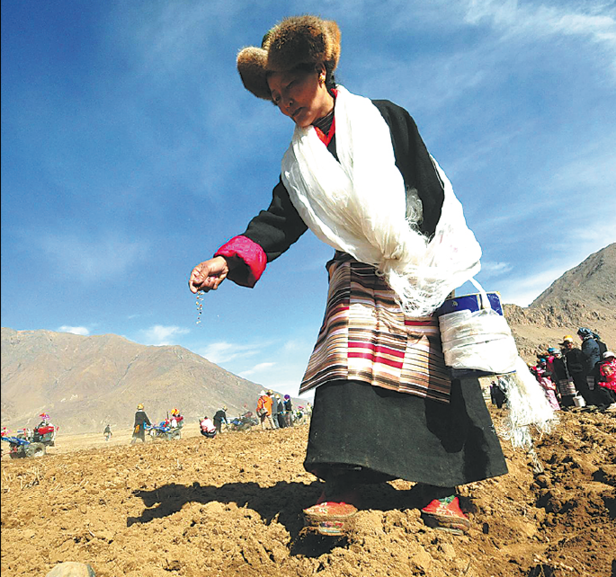Scientists to study climate change impact on glaciers in Tibet
As part of the country's second scientific expedition to the Qinghai-Tibet Plateau, Chinese scientists began exploring the sources of the Yarlung Zangbo River to determine how glaciers react to global warming.
Chinese President Xi Jinping on Saturday sent a letter to the research team to congratulate the scientists, young students and support staff of the expedition.
Xi said they should focus on problems related to the carrying capacity of the resources and the environment, disaster risk as well as green development on the plateau, according to the letter.
The Qinghai-Tibet Plateau is an important ecological safety barrier and strategic resource reserve base, Xi said in the letter, noting that the expedition will promote the plateau's sustainable development and the world's ecological environmental protection.
In the next two months, the research team will go to Tibet's Ngari prefecture, where they will study the environmental changes on glaciers, lakes, rivers and the ecosystem.
Wu Guangjian, one of the team leaders from the Institute of Tibetan Plateau Research with the Chinese Academy of Sciences (CAS), told China Central Television that the research team will make an analysis on the glaciers as sources of the Yarlung Zangbo River, the highest river in the world. By observing the melt water and runoff at the upper reaches of the river, the scientists will study how the glaciers react to global warming.
The second scientific expedition began in June and their first stop was Serling Tso Lake, a 2,391-square-kilometer lake that was confirmed to have replaced the Buddhist holy Namtso Lake as Tibet's largest in 2014.
A CAS research fellow who requested anonymity told the Global Times on Sunday that during the past two months, they found that the newly added water in Serling Tso Lake during the past 40 years accounts for the water volume of the Three Gorges Reservoir.
By testing the water volume and quality of a dozen lakes, they obtained the sediment core 200 years ago. Researchers also found the fossil coenosis and the oldest human habitat in North Tibet, the CAS expert said.
The expedition, led by the CAS, will analyze the impact of environmental change on social development and recommend a national park be established in the area.
Your Comment
Name E-mailRelated News
-
;
-
-

-
Barley provides health, chance to grow an industry
Highland barley farming is expected to become an important way for farmers in the Tibet autonomous region to get rich.
-
-
-

-
Plateau wolfberries aim at high-end markets
A decrease in wolfberry plant diseases and insects combined with the pollution-free high plateau means the area is suitable to the development of wolfberry cultivation, and wolfberries can be chosen for high-end markets.
-
Based in Lhasa, Tibet Vista is a Tibet travel agency that specialized in Tibet permit, and Tibet tours for both private and group travelers at a local price!
•4 Days Lhasa City Group Tour from USD 460 •8 Days Everest Base Camp Group Tour from USD 850 •15 Days Mt.Kailash Group Tour from USD 1780 •2016 Tibet Train Tours from Beijing, Shanghai, Chengdu, Xining,etc










